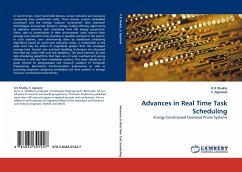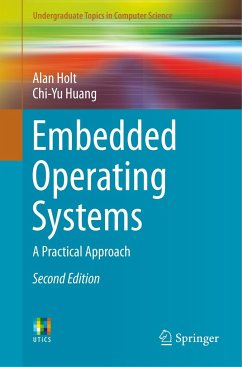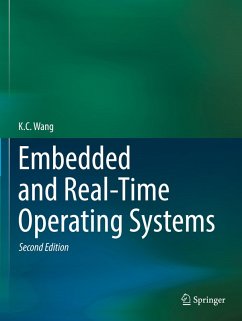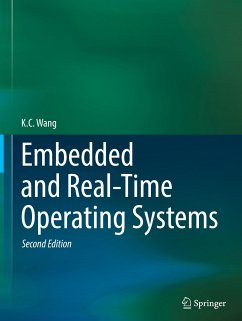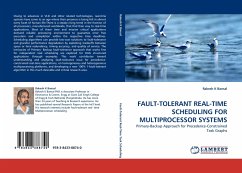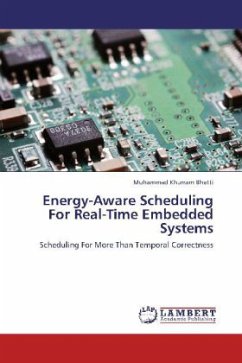
Energy-Aware Scheduling For Real-Time Embedded Systems
Scheduling For More Than Temporal Correctness
Versandkostenfrei!
Versandfertig in 6-10 Tagen
45,99 €
inkl. MwSt.

PAYBACK Punkte
23 °P sammeln!
Real-time embedded systems have become ubiquitous in our daily life. Due to their diversified usage, the research on these systems has confronted with many emerging challenges. One such challenge is to reduce power and energy consumption while maintaining assurance that timing constraints will be met. Power densities in microprocessors are almost doubled every three years. As energy is power integrated over time, supplying the required energy may become prohibitively expensive, or even technologically infeasible. This is particularly difficult in portable systems that heavily rely on batteries...
Real-time embedded systems have become ubiquitous in our daily life. Due to their diversified usage, the research on these systems has confronted with many emerging challenges. One such challenge is to reduce power and energy consumption while maintaining assurance that timing constraints will be met. Power densities in microprocessors are almost doubled every three years. As energy is power integrated over time, supplying the required energy may become prohibitively expensive, or even technologically infeasible. This is particularly difficult in portable systems that heavily rely on batteries for energy, and will become even more critical as battery capacities are increasing at a much slower rate than power consumption. This book presents four contributions that are based on the thesis that energy-efficiency of Real-time Embedded Systems and scheduling are closely related problems and therefore, should be tackled together for optimal results. Contributions of this book are: 1) Two-level Hierarchical Scheduling Algorithm for Multiprocessor Systems, 2) Assertive Dynamic Power Management Scheme, 3) Deterministic Stretch-to-Fit DVFS Technique, and 4) Hybrid Power Management Scheme.



